Akubra girl Dolly's bullying suicide shocks Australia
- Published
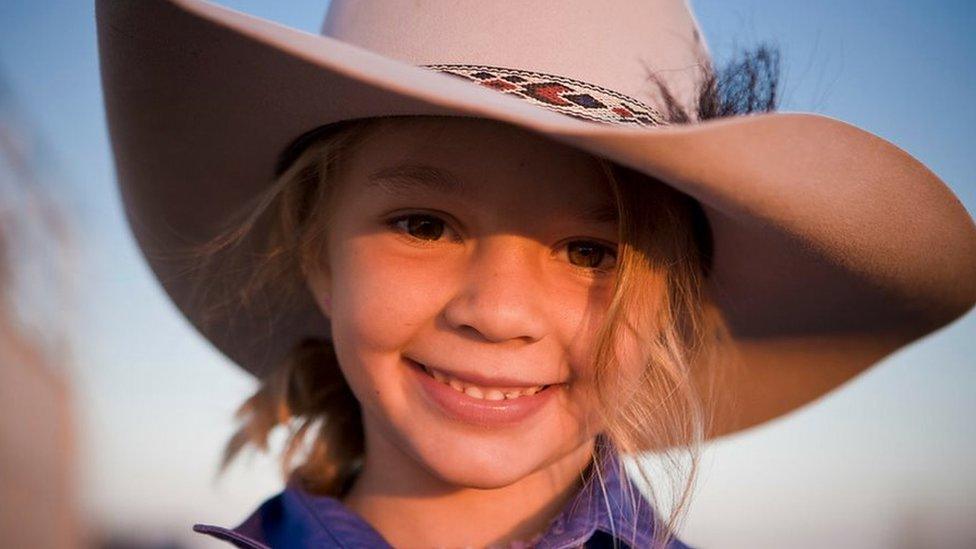
"Dolly" Everett had been the face of a well-known Akubra campaign when she was eight
A 14-year-old girl who as a child was the face of iconic Australian outback hat firm Akubra has taken her own life over online bullying, say her family.
In a Facebook post, the father of Amy "Dolly" Everett called for more awareness of bullying, external so his daughter's life "will not be wasted".
Akubra also expressed its condolences, issuing a call for all to "stand up" against any kind of bullying.
One in five children in Australia say they were bullied in the past year.
In his emotional Facebook post, written on Sunday, Dolly's father, Tick Everett, gave no details of the bullying, but said she had wanted to "escape the evil in this world".
He said he hoped the attention on Dolly's death last week might "help other precious lives from being lost".
He also invited the bullies to her funeral, saying: "If by some chance the people who thought this was a joke and made themselves feel superior by the constant bullying and harassment see this post, please come to our service and witness the complete devastation you have created."
On Wednesday, the family released a statement to media outlets saying Dolly had been "the kindest, caring, beautiful soul".
"She was always caring for animals, small children, other children at boarding school who were less fortunate than herself."
The family shared a recent drawing by Dolly showing a skinny figure bent over backwards underneath the words: "Speak even if your voice shakes."
"This powerful message tells the dark, scary place our beautiful angel had travelled to," her family said.
According to Australian broadcaster ABC, the family also said they wanted to establish a trust to raise awareness of bullying, anxiety, depression and youth suicide.
'Dolly could be anyone's daughter'
The wide-brimmed rabbit-fur Akubra hat is one of Australia's most recognisable brands, closely associated with rural outback life.
Dolly starred in a well-known ad campaign for the brand when she was eight.
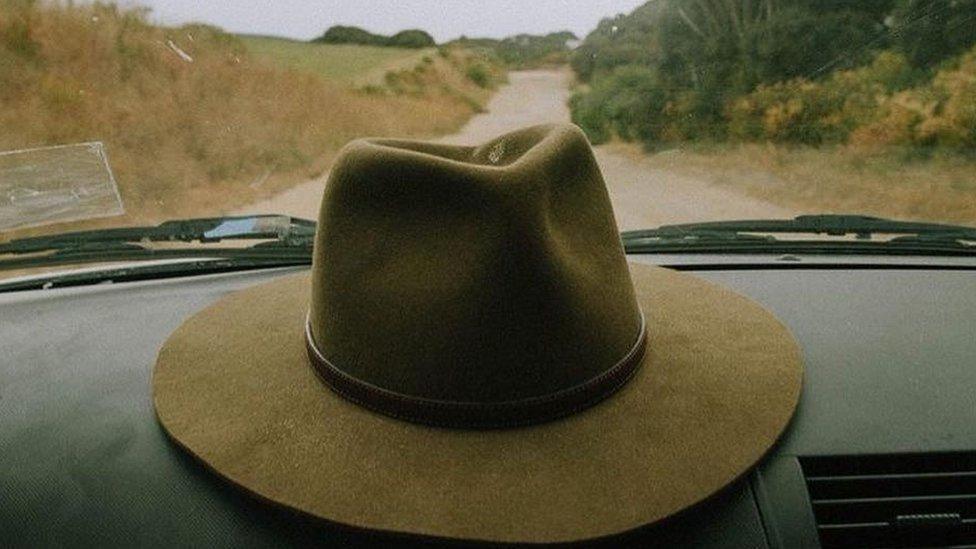
Akubra hats are a staple of Australian culture
"Bullying of any type is unacceptable,", external the company wrote on Facebook on Tuesday.
"It is up to us to stand up when we see any kind of bullying behaviour. Dolly could be anyone's daughter, sister, friend."
It urged readers: "Be a friend, check up on your mates."
According to Australia's National Centre Against Bullying (NCAB), while overall bullying rates have marginally declined over the past decade, cyberbullying has seen a sharp increase.
"What's different in the case of cyberbullying is that it can be constant, 24/7," Jeremy Blackman of the NCAB told the BBC.
"Another big factor is the anonymity on the internet," he said, explaining this can make it harder for people to feel any empathy for their victims.
"What it means it that more children can be bullies," he says.
Despite services and help lines available, teenagers are very reluctant to report when they are victims of bullying, according to NCAB, and only reach out for help if their situation has become unbearable.
There are no official statistics on suicides due to bullying. While national suicide rates in Australia are declining, the number of people between 15 and 24 taking their own life has seen a rise in recent years.
If you are feeling emotionally distressed and would like details of organisations in the UK which offer advice and support, go to bbc.co.uk/actionline.
If you in Australia, you can call Lifeline at 131114, Kids Helpline at 1800 55 18000 or visit the National Centre Against Bullying website, external.
- Published9 January 2018
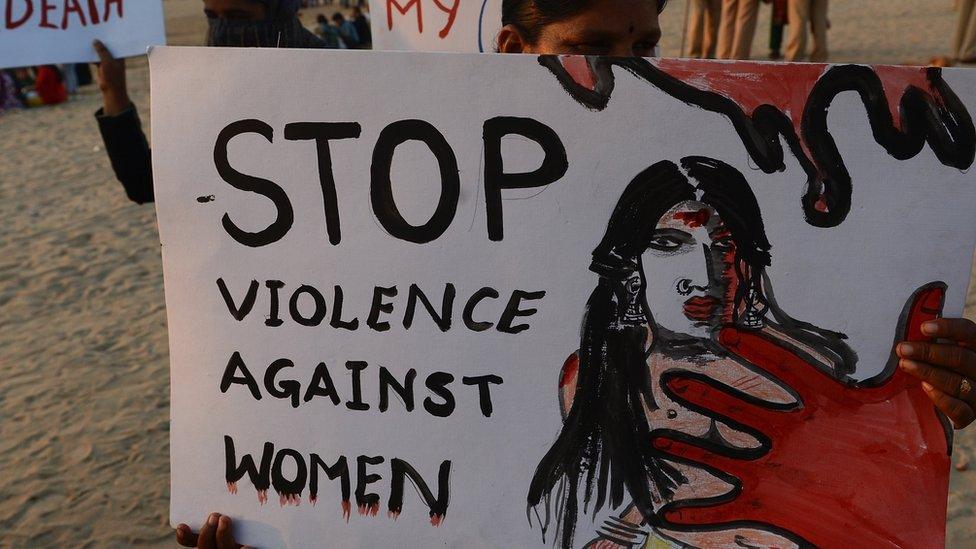
- Published16 November 2017
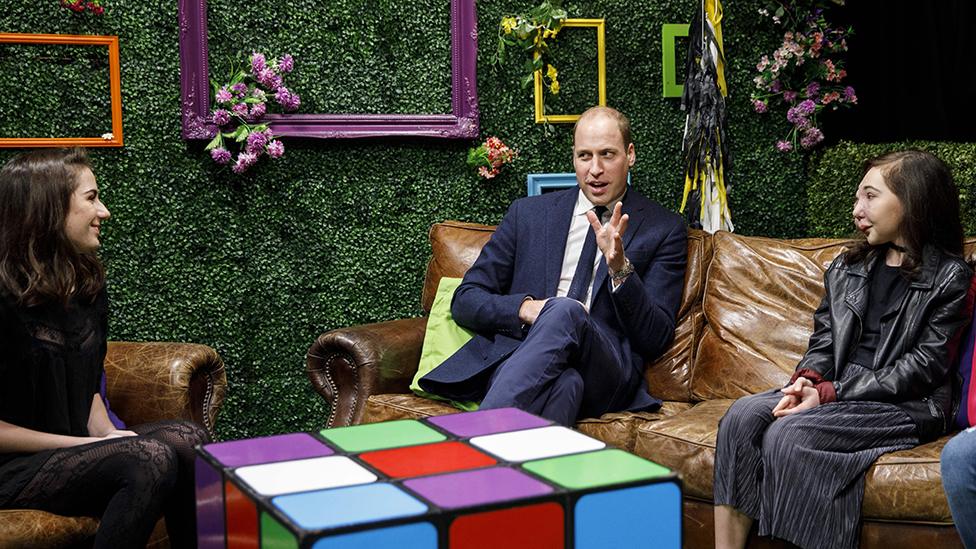
- Published19 July 2017
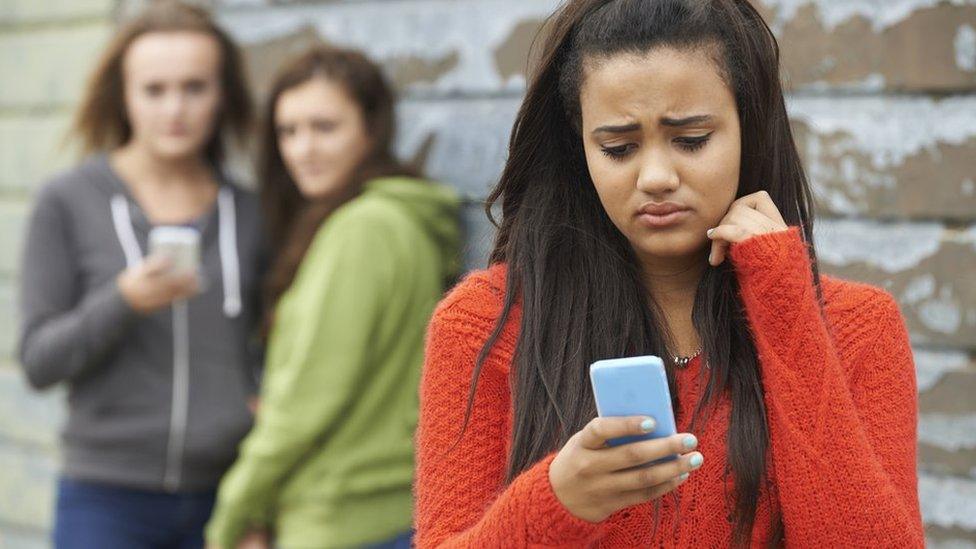
- Published2 January 2018

- Published17 November 2017